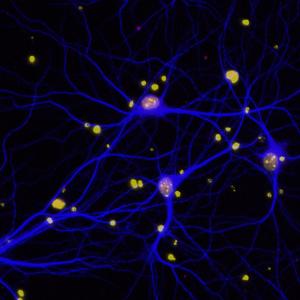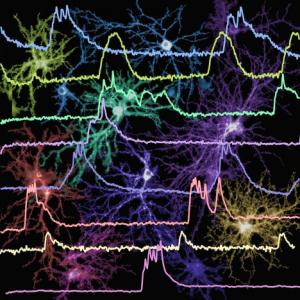Faculty Spotlight: Iain Bruce, PhD
Iain Bruce, PhD, wants to get a better look at your brain. Not just at the gray, squishy lobes we’ve all seen in photographs, but at the structural changes smaller than a human hair that can lead to seizures or that eventually develop into Alzheimer’s disease. In this week’s “spotlight” interview, the new member of the Neurology Department and Brain Imaging and Analysis Center talks to us about his work advancing the field of magnetic resonance imaging (MRI) to help patients with epilepsy and other conditions.
Duke Neurology Research Round Up, February 2020
Faculty from the Duke Department of Neurology contributed to seven new peer-reviewed journal articles in January 2020. A team including Simon Davis, PhD, helped to answer questions about how the brain forms and stores memory. Christa Swisher, MD, Christian Hernandez, MD, and colleagues evaluated a promising new tool that offers improved in-patient seizure detection.
Duke Neurology Research Round Up, February 2020
Faculty from the Duke Department of Neurology contributed to seven new peer-reviewed journal articles in January 2020. A team including Simon Davis, PhD, helped to answer questions about how the brain forms and stores memory. Christa Swisher, MD, Christian Hernandez, MD, and colleagues evaluated a promising new tool that offers improved in-patient seizure detection.
Duke Neurology Research Round Up, January 2020
Members of the Duke Department of Neurology contributed to nine studies in peer-reviewed journals published in December 2019. In the fields of neurodegeneration and neuromuscular disease, our faculty found potential new avenues for therapies for spinocerebellar ataxia type 7 (SCA7) and myasthenia gravis. Other studies by our faculty and housestaff answered important questions about how reductions in blood pressure affect outcomes for thrombectomy, outcomes for deep brain stimulation for patients with Parkinson’s, and other areas.
Neurology and Women's Health, Part 2: Epilepsy
Treatment is complicated for anyone with epilepsy, but especially for women, with pregnancy, family planning, and health concerns such as osteoporosis all affecting the treatment that may be best for any one woman. Fortunately, many options are available, and epilepsy does not have to prevent a woman from leading a fulfilling life or having a healthy pregnancy.



